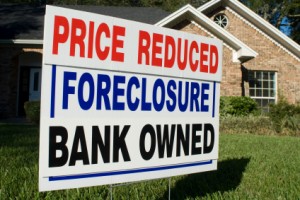The Fed has released 3 new initiatives for homeowners avoid foreclosure. To read more about these initiatives click here.
Online recommendations
- Casino Online Nuovi
- Casino Not On Gamstop
- Migliori Casino Online
- Casino Non Aams
- Migliori Casino Online
- Non Gamstop Casino
- Non Gamstop Casinos
- Games Not On Gamstop
- Best Non Gamstop Casinos
- Casino Not On Gamstop
- Betting Sites Not On Gamstop
- Non Gamstop Casinos Uk
- Casinos Not On Gamstop
- Best Non Gamstop Casinos
- Best Non Gamstop Casinos
- Non Gamstop Casino Sites UK
- Non Gamstop Casino Sites UK
- UK Casino Sites Not On Gamstop
- UK Casinos Online
- Meilleur Casino En Ligne France
- UK Online Casinos Not On Gamstop
- Slots Not On Gamstop
- Sites Not On Gamstop
- Migliori Casino Non Aams
- Best Non Gamstop Casinos
- Migliore Casino Non Aams
- Crypto Casino
- Casino Online
- Paris Foot Belgique
- Migliori Casino Non Aams
- Meilleur Casino En Ligne
- Casino Con Visa
- Nouveau Casino En Ligne
- Site De Paris Sportifs
- Migliore Casino Non Aams
- Pagamenti Crypto Scommesse
- Casino Senza Invio Documenti
- Casino Non Aams
- Casino En Ligne Fiable
- Casino Online Non AAMS

Click here to listen to the Legal Hour on KDWN AM720 from March 6th, 2013 in which Managing Partner, Tisha Black Chernine, Esq. discusses legislation that protects home buyers from wrongful foreclosures (7:00), the purpose of AB 284 (11:05), wrongful foreclosure scenarios (16:30), foreclosure time limits in bankruptcy (20:30), the effects of HOA foreclosures (23:45), how to get on a property’s title (30:15), recouping loss from a renting a foreclosed property (33:10) and contracts and arbitration clauses (36:20).
Please tune in to AM720 KDWN’s “Legal Hour,” every Wednesday, from 9 AM to 10 AM. Listen live on the radio or online. Feel free to call in with your comments or questions at 702-257-5396.
To listen to past shows, visit our Media page.

Click here to listen to the Legal Hour on KDWN AM720 from March 20th, 2013 in which Managing Partner, Tisha Black Chernine, Esq. and Steven Mack, Esq. discuss the Nevada Homeowner Relief Program and Fannie Mae’s Home Path website (3:40), the effects of rising home values on inventory (9:00), Las Vegas’ improving real estate market (16:00), leasing homes back to sellers (19:00), banks lending practices (22:00), the foreclosure one action rule (28:45), trash collection in Las Vegas (32:48) and trusts vs. wills (37:10).
Please tune in to AM720 KDWN’s “Legal Hour,” every Wednesday, from 9 AM to 10 AM. Listen live on the radio or online. Feel free to call in with your comments or questions at 702-257-5396.
To listen to past shows, visit our Media page.
What is the foreclosure process in Nevada? The answer can help a homeowner decide what course of action to take in this stressful situation.
A foreclosing lender in Nevada is entitled to a nonjudicial foreclosure of its Deed of Trust. The Deed of Trust secures the payment of the promissory note given by the homeowner to the lender at the time the loan is made.
A nonjudicial foreclosure means that the lender need not file a court case to pursue the foreclosure. Nevada lenders are entitled to a Trustee’s sale of the property once the mandatory foreclosure time period has passed.
The foreclosure process takes a minimum of 111 days. The process begins with the filing and service of the Notice of Default (NOD). The NOD is filed with the county real property records.
The NOD starts the 35-day reinstatement period. During this period the homeowner may reinstate the loan by paying all delinquent payments, Trustee fees, and other expenses.
Starting on the 36th day after the NOD the homeowner can avoid the Trustee’s sale only by paying the entire loan amount together with the associated fees and expenses.
During the final 21 days of the 111 day foreclosure period the Trustee must publish a notice of sale once each week for three successive weeks.
The actual sale site may be the Trustee’s office or other location. The lender will bid in the amount of its debt. This is generally the winning bid. The lender takes title to the property after the sale.
It is important to note that after the sale the homeowner has no right of redemption for the property.
Watch for future posts about the lender’s right to a deficiency judgment against the homeowner and other foreclosure topics.
In February 2012, 49 state attorneys general, including Nevada’s AG, and the federal government announced a historic joint state-federal settlement with the country’s five largest mortgage servicers:

•Ally/GMAC
•Bank of America
•Citi
•JPMorgan Chase
•Wells Fargo
This is the largest consumer financial protection settlement in US history.
The agreement settles state and federal investigations finding that the country’s five largest mortgage servicers routinely signed foreclosure related documents outside the presence of a notary public and without really knowing whether the facts they contained were correct. Both of these practices violate the law.
If you lost your home to foreclosure in Nevada between 2008 and 2011, you have probably already been notified that you may be eligible to participate in Nevada’s settlement with the National Mortgage Settlement Administrator. THE FINAL DAY TO SUBMIT A CLAIM FORM TO BE ELIGIBLE TO RECEIVE PAYMENT IS FRIDAY, JANUARY 18, 2013.
To see if you are eligible, you may visit www.nationalmortgagesettlement.com.
David Gorka, head of Black & LoBello’s Submission and Processing department, answers some common questions clients have regarding the document submission process when dealing with a short sale and the lenders involved.
The California Department of Housing has released a memorandum detailing the laws that went into effect relating to lending servicers and foreclosure requirements.
The 9 page memo is a brief outline of the mandates California lawmakers imposed as a result of the mortgage crisis, robo-signing and poor performance in borrowers services.
California’s “Borrower’s Bill of Rights” is far more reaching and punitive that recent laws passed in Nevada affecting non-judicial foreclosure. Starting January 2013, offenders of any of the various requirements ranging from documentation and customer service, could pay the greater of $50,000 or trebled damages.
The memo can be viewed here.

On Monday, Fannie Mae announced that it will suspend evictions on foreclosed residential units from December 19, 2012 until January 2, 2013. That does not mean that the foreclosures will not continue, but families living in their homes will not be removed until after the 2nd day of the new year. Fannie Mae representatives stated “the holidays are a chance to be with loved ones and we want to relieve some stress at this time of year. We encourage homeowners having difficulty to reach our for help as soon as possible.”
If you are not certain that your home is a Fannie Mae loan, check www.makinghomeaffordable.gov or call 1.800.7fannie.
The controversial company, MERS, continues to face critical review across the nation. The Supreme Court of Washington, in particular, recently ruled against MERS in the arena of non-judicial foreclosures. The Court succinctly stated that, “if MERS does not hold the note, it is not a lawful beneficiary.(http://www.courts.wa.gov/opinions/index.cfm?fa=opinions.s
This is so because Washington law defines the “beneficiary” as “the holder of the instrument or document evidencing the obligations secured by the deed of trust.” See RCW 61.24.005(2). Unfortunately, the Court could not go further to decide what the implications were of such a finding in the case at hand.
Similarly, the Supreme Court in Oregon recently accepted several certified questions regarding MERS, which may further clarify MERS’ role. The certified questions include: (1) whether MERS may act as a beneficiary; and (2) whether MERS may retain and transfer legal title to a trust deed as nominee for the lender, after a note secured by the trust deed is transferred from the lender to a successor(s) or series. Additionally, the Court will address the transfer of promissory notes and deeds of trusts. See http://media.oregonlive.com/business_impact/other/Order.pdf

Click here to listen to the Legal Hour on KDWN AM720 from June 20th, 2012 in which Managing Partner, Tisha Black Chernine, Esq., hosts special guest, Randy M. Creighton, Esq., a bankruptcy attorney practicing at Black & LoBello. Mrs. Black Chernine and Mr. Creighton discuss the meeting of the creditors or 341 meeting (2:30), documents required at the 341 meeting (8:30), qualifying for chapter 7 based on income (9:00), whether a debtor can plead the 5th amendment (10:40), modifying an FHA loan (14:00), what happens to creditors after bankruptcy (21:45), will bankruptcy stop a foreclosure (24:30), how to stop a bankruptcy process (26:24), what happens after the 341 meeting (28:15)(35:05), wage garnishment and bankruptcy (29:12) and bankruptcy and credit history (38:03).
Please tune in to AM720 KDWN’s “Legal Hour,” every Wednesday, from 9 AM to 10 AM. Listen live on the radio or online. Feel free to call in with your comments or questions at 702-257-5396.
To listen to past shows, visit our Media page.

Click here to listen to the Legal Hour on KDWN AM720 from April 4th, 2012. Christopher Phillips, Esq., who practices Probate, hosts with guest lawyer Andras Babero, Esq., who practices in Commercial Litigation and Real Estate Law from the law firm Black & LoBello in Las Vegas, Nevada. Mr. Babero and Mr. Phillips discuss AB 284 and how lenders could avoid its requirements (1:20), how robo-signing affects foreclosure (10:40), how irrevocable trusts can be amended (13:35), how to remove a trustee (18:30), contesting rights to assets (20:55), liability on mortgage fraud (25:40) and assets exempt from collections (33:40).
Please tune in to AM720 KDWN’s “Legal Hour,” Wednesdays, from 9 AM to 10 AM. Listen live on the radio or online. Feel free to call in with your comments or questions at 702-257-5396.
To listen to past shows, visit our Media page.
 Click here to listen to the Legal Hour on KDWN AM720 from February 29th, 2012 in which Managing Partner, Tisha Black Chernine, Esq., hosts special guest John Kelleher, the Chief Deputy Attorney General. Mrs. Black and Mr. Kelleher discuss the fight against foreclosure fraud (1:33), the new types of real estate fraud (6:55)(33:40), what to do to combat real estate fraud by yourself (12:50), how to quit-claim a a property back to the bank or mortgage company (21:50), how to protect assets from banks (27:32) and problems with refinancing mortgages (37:50).
Click here to listen to the Legal Hour on KDWN AM720 from February 29th, 2012 in which Managing Partner, Tisha Black Chernine, Esq., hosts special guest John Kelleher, the Chief Deputy Attorney General. Mrs. Black and Mr. Kelleher discuss the fight against foreclosure fraud (1:33), the new types of real estate fraud (6:55)(33:40), what to do to combat real estate fraud by yourself (12:50), how to quit-claim a a property back to the bank or mortgage company (21:50), how to protect assets from banks (27:32) and problems with refinancing mortgages (37:50).
Please tune in to AM720 KDWN’s “Legal Hour,” every Wednesday, from 9 AM to 10 AM. Listen live on the radio or online. Feel free to call in with your comments or questions at 702-257-5396.
To listen to past shows, visit our Media page.
 Click here to listen to the Legal Hour on KDWN AM720 from February 1st, 2012 in which Managing Partner, Tisha Black Chernine, Esq., hosts special guest Mark Stark, CEO and Owner Broker of Prudential Americana Group of Realtors. Ms. Chernine and Mr. Stark discuss the good and bad aspects of the real estate market in 2011 (3:10), how AB 284 affects the available real estate inventory (7:42), how to find a real estate agent with experience in short sales (12:25), real estate debt obligations in a marriage (22:05), the current state of the real estate industry (24:16), the likelihood of banks to sue for a deficiency (32:54), the areas of the Vegas valley hardest hit by the housing crisis and the benefits of buying a property in the current economy (37:50).
Click here to listen to the Legal Hour on KDWN AM720 from February 1st, 2012 in which Managing Partner, Tisha Black Chernine, Esq., hosts special guest Mark Stark, CEO and Owner Broker of Prudential Americana Group of Realtors. Ms. Chernine and Mr. Stark discuss the good and bad aspects of the real estate market in 2011 (3:10), how AB 284 affects the available real estate inventory (7:42), how to find a real estate agent with experience in short sales (12:25), real estate debt obligations in a marriage (22:05), the current state of the real estate industry (24:16), the likelihood of banks to sue for a deficiency (32:54), the areas of the Vegas valley hardest hit by the housing crisis and the benefits of buying a property in the current economy (37:50).
Please tune in to AM720 KDWN’s “Legal Hour,” everyday, from 9 AM to 10 AM. Listen live on the radio or online. Feel free to call in with your comments or questions at 702-257-5396.
To listen to past shows, visit our Media page.
 Click here to listen to the Legal Hour on KDWN AM720 from August 10th, 2011 in which managing partner, Tisha Black Chernine, discusses the latest news regarding the real estate market, mediation programs available for homeowners, legal developments in Nevada, landlord/tenant issues and takes callers questions and comments regarding foreclosure.
Click here to listen to the Legal Hour on KDWN AM720 from August 10th, 2011 in which managing partner, Tisha Black Chernine, discusses the latest news regarding the real estate market, mediation programs available for homeowners, legal developments in Nevada, landlord/tenant issues and takes callers questions and comments regarding foreclosure.
Please tune in to AM720 KDWN to hear Tisha Black Chernine, Esq., on the “Legal Hour,” every Wednesday, from 9 AM to 10 AM. Listen live on the radio or online. Feel free to call in with your comments or questions at 702-257-5396.
 Senate Bill No. 414 was introduced to address some of the consequences of the downturn in the current real estate market. Section 2 of the Bill was intended to prevent a bank from calling a commercial mortgage loan due if the borrower is not in default. That section was quickly eliminated by amendment from the final bill.
Senate Bill No. 414 was introduced to address some of the consequences of the downturn in the current real estate market. Section 2 of the Bill was intended to prevent a bank from calling a commercial mortgage loan due if the borrower is not in default. That section was quickly eliminated by amendment from the final bill.
SB 414 mandates lenders respond to short sale requests within a reasonable period of time. A “reasonable period of time” is defined to mean a response within 90 days after receipt of the offer, unless the parties agree to a written extension of time.
Section 3 was the gravamen of SB 414. It prohibits a lender from unreasonably delaying a response to an offer for a residential short sale. It further prevents lenders from obtaining a deficiency judgment against a borrower in certain instances.
The Nevada Senate Committee on Commerce, Labor and Energy (the “Committee”) (where the bill originated) was concerned about lenders pursuing deficiency judgments against residential borrowers after they had completed a short sale. Senator Schneider, said the following:
“I was concerned about people who are upside down in the mortgages on their homes, cannot make payments anymore, for whatever reason, and they short sell their home. I do not want banks going after the seller for the difference between what the house sold for and the mortgage.”
The Committee sought to remedy this issue by prohibiting lenders from further pursuing the borrower after the short sale has been concluded, if all the parties agreed.
William Uffelman, President and CEO of the Nevada Bankers Association (the “NBA”), testifying on behalf of the lenders, sought to balance the lenders’ very real concern of potentially having to write down or write off loans to satisfy the FDIC, the Office of the Comptroller of the Currency, or U.S Department of the Treasury, with individuals being forced into bankruptcy or foreclosure while trying to protect their homes.
Typically, lenders that hold first deeds of trust are more willing to forego a deficiency, whereas second deeds of trust holders are less likely to do so. Short sales are often held up because second trust deed holders are more intransigent. Lenders also will seek to take a strategic advantage by delaying responding to the borrower’s overtures for a short sale. SB 414 addressed both issues.
The NBA’s Mr. Uffelman conceded that financial institutions could retain the right to a deficiency judgment right if they responded within a reasonable period of time, and they reserved the right to a deficiency judgment in the short sale agreement executed by all the parties. This allows a lender to pursue a borrower for a deficiency judgment when the borrower makes a “strategic default,” yet it gives most borrowers finality.
As Senator Schneider so eloquently stated, “the concept here is that for all our constituents who are doing short sales, we do not want to leave them hanging there and later have the big bank looking to squeeze more blood out of them.”
Historically, the forgiven or waived portion of a debt is subject to tax as income when all or a portion of a debt has been forgiven by a lender. However, Congress enacted a law in 2007, which does not subject debt forgiveness to tax when the forgiven debt is due to foreclosure. SB 414’s deficiency judgment waiver rules prohibit any debt forgiveness liability under any IRS tax rule changes that may take place after December 31, 2012.
The Committee believed it was not enough for the borrower to depend on a statement of the lenders’ intent to waive a deficiency judgment. The Committee wanted to have all parties state their intentions regarding a waiver of a deficiency judgment in clear and unambiguous language. Thus, SB 414 will require a written, conspicuous statement, acknowledged by the debtor or grantor which states that the lender has waived its right to recover a deficiency and the amount of recovery that is being waived.
SB 414 was approved by Governor Sandoval on June 13, 2011.
 Click here to listen to a clip from the Legal Hour on KDWN AM720 in which Tisha Black-Chernine explains the trends in the Las Vegas real estate market of the past and present and what affects it today.
Click here to listen to a clip from the Legal Hour on KDWN AM720 in which Tisha Black-Chernine explains the trends in the Las Vegas real estate market of the past and present and what affects it today.
As everyone in the valley is well aware, we have been hit by an unprecedented wave of foreclosures. The banks holding these notes have been completely unwilling to modify the principal of these loans. They have agreed to short sales and to loan modifications, but these processes are frustrating and time consuming at best. Unfortunately, frustration with the process has led some homeowners to enact a measure of revenge by damaging the home that is about to go into foreclosure.
The Nevada Legislature has passed, and the Governor has signed, a law that criminalizes such actions. The law makes it a misdemeanor for a person to conceal remove or destroy property if: 1) the person knows of a foreclosure proceeding, 2) an entity or person holds a security interest in the property, 3) the person acted with the intent to defraud the secured party and 4) the person’s actions causes the secured party to suffer monetary loss at foreclosure. The final Bill is much less severe than the original Bill. The original Bill made it a Class E Felony. A Class E Felony is punishable by 1-4 years in prison and a maximum fine of $5,000. A misdemeanor is defined as a crime punished by no more than 6 months in the county jail and a $1,000 fine. Moreover, the original Bill only required that the prosecutor prove that there was intent to diminish the value of the property. In the current Bill, the person must have acted with the intent to defraud the secured party. Under the original Bill, an innocent homeowner simply trying to remove an improvement could have been convicted of a felony and sent away to the state prison for well over a year. The law takes effect on October 1, 2011.
The purchase of a house is the largest purchase most people will ever make. When hard times hit and a homeowner loses their house, the debt the homeowner still owes to the bank is the largest debt a person will ever have. After suffering a pay cut or the loss of a job and with few job prospects in Nevada, a homeowner might feel that they will never be able to pay off a defaulted loan on their house. If there are two loans, the situation is even worse. Many homeowners are nervous about what a bank can do to them and scared of the bank bringing a lawsuit against them. Nevada Assembly Bill 273 makes major improvements to the law to protect homeowners by limiting the amount of money a bank can collect after a homeowner loses their home. The law also reduces the time a bank has to file a lawsuit against some homeowners. These protections will greatly improve a homeowner’s opportunity to start over after a foreclosure or short sale, without the threat of a huge debt or a lawsuit by a lender.
Some definitions will make it easier to understand the new laws. Many of AB 273’s new laws apply to “second lienholders” who have been mostly unregulated under Nevada law. A “second lienholder” or “junior lienholder” is a bank, trust, investor or other entity that currently owns the second mortgage and has the right to collect a deficiency on a second mortgage. A “deficiency” is the amount of money a homeowner owes a lender on a mortgage loan after the house is sold at a foreclosure sale, trustee sale, short sale or a deed in lieu of foreclosure. The term “lender” in this article includes banks, mortgage companies, loan companies, investment trusts and any other entity that “holds” or owns the mortgage note or loan papers. In Nevada, under the old laws, a person’s individual assets and income could be taken by a judge if a lawsuit found the person owed a deficiency to a mortgage lender.
Under a recently amended Nevada law, a lender may not collect a deficiency in court on first mortgages taken out after October 1, 2009. Section 3 of AB 273 extends those protections to second mortgages taken out after June 10, 2011. This law will apply if the lender is a financial institution, the real property is a single-family house and the homeowner owned the property, used the loan to purchase the property, lived in the property and did not refinance the loan. Section 3 also expands the protection afforded to homeowners by prohibiting collection of deficiencies on an eligible second mortgage not only after a foreclosure sale or trustee sale, but also after a short sale and a deed in lieu of foreclosure. For the first time, homeowners who cooperate with the lenders and try a short sale or a deed in lieu of foreclosure will be protected from lenders that will not release the deficiency, at least with regards to junior lienholders.
The State Legislature also took steps to protect homeowners with older second mortgage loans. Section 3.3 states that a junior lienholder must file a lawsuit to recover a deficiency within six months after a foreclosure sale, trustee sale, short sale or a deed in lieu of foreclosure that occurs on or after July 1, 2011. A six month statute of limitation applies to first lienholders after a foreclosure sale or trustee sale. Beginning on July 1, 2011, a homeowner will only have to wait six months to find out if a lender will file a lawsuit. That should provide some relief to nervous homeowners. Remember that (1) for sales occurring before July 1, 2011, the six-year statute of limitations will still apply to lawsuits for collections on second mortgages and (2) the six-year statute of limitations will apply to lawsuits for collections on first mortgages for deficiencies after short sales and deeds in lieu of foreclosure.
Dozens of homeowners have questioned why they have to pay the full amount after a foreclosure when the lender has collected insurance payments on that loan. The Legislature also acted to fix this unfair situation. The new law states that the lender will not be allowed to collect from both the insurance company and the homeowner. Section 2 of AB 273 directs judges to subtract the amount of proceeds received by, or payable to, the holder of a second mortgage from an insurance policy from the amount owed by the homeowner. The laws in Section 2 will only apply to second mortgages taken out after June 10, 2011.
Many homeowners are finding that their mortgages are being sold to debt collection agencies or secondary buyers that seem to just want a big, quick pay-off. Unlike the big banks, these secondary buyers are not interested in short sales, deeds in lieu of foreclosure or promissory note contributions and their demands for big cash settlements can be extremely stressful for a borrower. Homeowners are savvy enough to know that these buyers paid much less than full price for these second mortgages, yet these companies want to collect on the entire balance of the mortgage, plus fees, penalties, costs and interest. Nevada law allows a lender to recover in court an amount of deficiency that remains from the full loan balance after subtracting the fair market value or actual sale price of the home (with interest). Section 5 of AB 273 limits that recovery if the creditor acquired the right to obtain a money judgment (meaning the creditor bought the loan or the debt from a previous holder of the note). If so, the recovery is limited to the amount the creditor paid for the loan minus the fair market value or actual sale price of the house, plus interest. Section 5 becomes effective June 10, 2011. Creditors that purchase second mortgages and sue to collect are governed by Section 2 of AB 273. This law applies to any person or business that acquires the right to enforce a junior mortgage from a previous holder of the second mortgage, and limits the amount that can be won in court to the amount of money the new holder paid for that second mortgage, plus interest and costs. Sections 2 and 5 of the new law will stop businesses from paying pennies on the dollar for mortgages and then trying to collect in full.
These new Nevada laws go a long way toward protecting homeowners from unfair costs and lawsuits after the loss of their home.
Today, various news outlets have reported the Federal Trade Commission is issuing refund checks to homeowners that were overcharged by Countrywide Home Loans, Inc. These checks are a product of the FTC’s hefty settlement with Countrywide, which was made June of last year, after the FTC’s investigation uncovered severe inaccuracies in the Countrywide billings to its clients. These offenses (“Junk Fees”) include unreasonably marking up default-related fees such as inspections, maintenance services, title searches, and foreclosure trustee services, as well as falsifying charges during borrowers’ Chapter 13 bankruptcy proceedings. The checks amount to nearly $108 million, but this could be just the tip of the iceberg, so to speak.
FTC Chairman Jon Liebowitz recently remarked, “Countrywide’s unconscionable behavior harmed American consumers on a massive scale and we are proud to be getting every single dollar back to hundreds of thousands of struggling consumers who can least afford to lose the money.” The refund checks are only a portion of the FTC’s commendable work. That is, the settlement order also prohibits Countrywide, and Countrywide Home Loans Servicing LP’s successor BAC Home Loans Servicing, LP, from taking advantage of borrower’s in default and/or bankruptcy.
 “Pay us $1,000 now, and we’ll save your home.” Fees that are thousands of dollars and are to be paid up front or in partial payments are a sign of potential fraud. Companies cannot collect fees until you have a written, acceptable offer from your lender or servicer and a written description of the key changes to your mortgage.
“Pay us $1,000 now, and we’ll save your home.” Fees that are thousands of dollars and are to be paid up front or in partial payments are a sign of potential fraud. Companies cannot collect fees until you have a written, acceptable offer from your lender or servicer and a written description of the key changes to your mortgage.- “We guarantee principal reductions.” Beware of guarantees that a person or company can stop foreclosure, modify your loan, short sell your property or guarantee that you will remain in your house. Any person or provider guaranteeing an outcome is a sign of fraud. Providers must give you realistic evidence for any claims they make. They must also be licensed. Many times you can find signs of trouble by searching the internet and inquiring with the proper licensing division.
- “Give us the Deed, and we’ll let you stay in your house.” Never, never, never sign your deed over to anyone. The deed holder can sell the right to evict or sell your house and you will still be liable for your mortgage.
- “Stop paying your mortgage.” Not paying your mortgage is a contract breach and will give rise to legal liability. You may lose your home and damage your credit rating. It also creates liability for the one giving you such instruction which is a sign that the person you are dealing with has no idea what they are doing.
- “Don’t talk to your lender.” Companies cannot legally tell you to stop communicating with your lender or servicer. You should be concerned if you are told to quit communicating with your lender. It is a good sign of a scam.
- “Your lender never had the legal authority to make a loan.” There is no “secret” or “little known” law that will absolve you of your debt obligation. There are very highly technical arguments that may be useful regarding transfers. However, only a well-seasoned and licensed attorney in your state can help you in this area. These arguments, if successful will still not relieve you from the debt owed pursuant to the note.
- “Just sign this now; we’ll fill in the blanks later.” Take the time to read and understand anything you sign. Never let anyone else fill out paperwork for you. Don’t let anyone pressure you into signing anything that you don’t agree with or fully understand. Take the document home or to an attorney who can review it for you in a consultation.
- “Call 1-800-Fed-Loan.” A lot of fraud is being conducted under the guise of official federal programs. Do not be fooled or persuaded by providers of mortgage relief services claiming that they are affiliated with any government program.
- “You should file for bankruptcy to keep your home.” Filing for bankruptcy stops foreclosure temporarily. However, it has serious consequences and may not always enable you to keep your house. You should seek the advice of an attorney licensed in your state if you are considering filing for bankruptcy.
- “We can save your home. Call now before you lose your home!” High-pressure tactics are the best sign of fraud.

